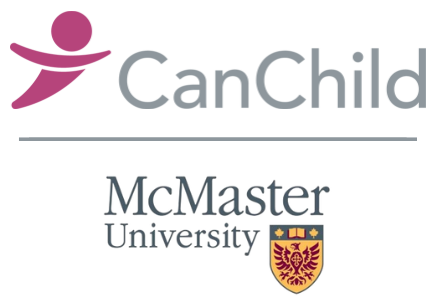“The Six ‘F-Words’ for CP” is based on the paper “The ‘F-words’ in Childhood Disability: I swear this is how we should think!” by Dr. Peter Rosenbaum and Dr. Jan Willem Gorter, and focuses on the key areas of child development. The six F-words are Function, Family, Fitness, Friends, Fun, and Future.
Read Resources
14 resources found
Autism Classification System of Functioning: Social Communication (ACSF:SC)
The Autism Classification System of Functioning: Social Communication, or ACSF, provides a standardized and simplified way for clinicians, therapists, teachers, and parents to talk about what a child’s social communication abilities are.
Read Resources
Move & Play Glossary
Activity Activity is defined by the World Health Organization as the “execution of a task or action by an individual”. Examples of activities are eating, talking, and walking. Within this classification system, the essence is being able to do these…
Read Resources
Concussion/Mild Traumatic Brain Injury Guideline Brochures
Child specific Return to Activity guidelines, which are more conservative than adult guidelines, were developed to guide management when youth sustain a concussion.
Read Resources
Motor Growth Curves
GMFM scores of a sample of over 650 Ontario children with cerebral palsy with varying GMFCS levels have been used to create five Motor Growth Curves.
Read Resources
The Child and Adolescent Scale of Participation (CASP)
The Child and Adolescent Scale of Participation (CASP) measures the extent to which children participate in home, school, and community activities as reported by family caregivers.
Read Resources
Gross Motor Ability Estimator (GMAE-2) Scoring Software for the GMFM
The GMAE-2 is a software package for scoring the Gross Motor Function Measure (GMFM). Like the original, it provides an interval-level measure of gross motor function based on a child’s score on the items of the GMFM.
Read Resources
Creating the MPOC, Part 2: Validation of a measure of processes of care-giving
This cross-sectional study continued a multi-year program of research conducted to understand the relation between caregiving offered to parents of children with neuro-developmental disabilities and parents’ mental health
Read Resources
Recognizing and Referring Children with Developmental Coordination Disorder: The Role of the Physician
When parents bring their children into the office for healthy child visits, you have a wonderful opportunity to explore many areas of child development including cognitive, speech, language, gross motor and fine motor, social and self-care.
Read Resources
Suggested Readings for Developmental Coordination Disorder
This is an annotated bibliography of selected books on Developmental Coordination Disorder (DCD) that may be suitable for different audiences and purposes.
Read Resources
